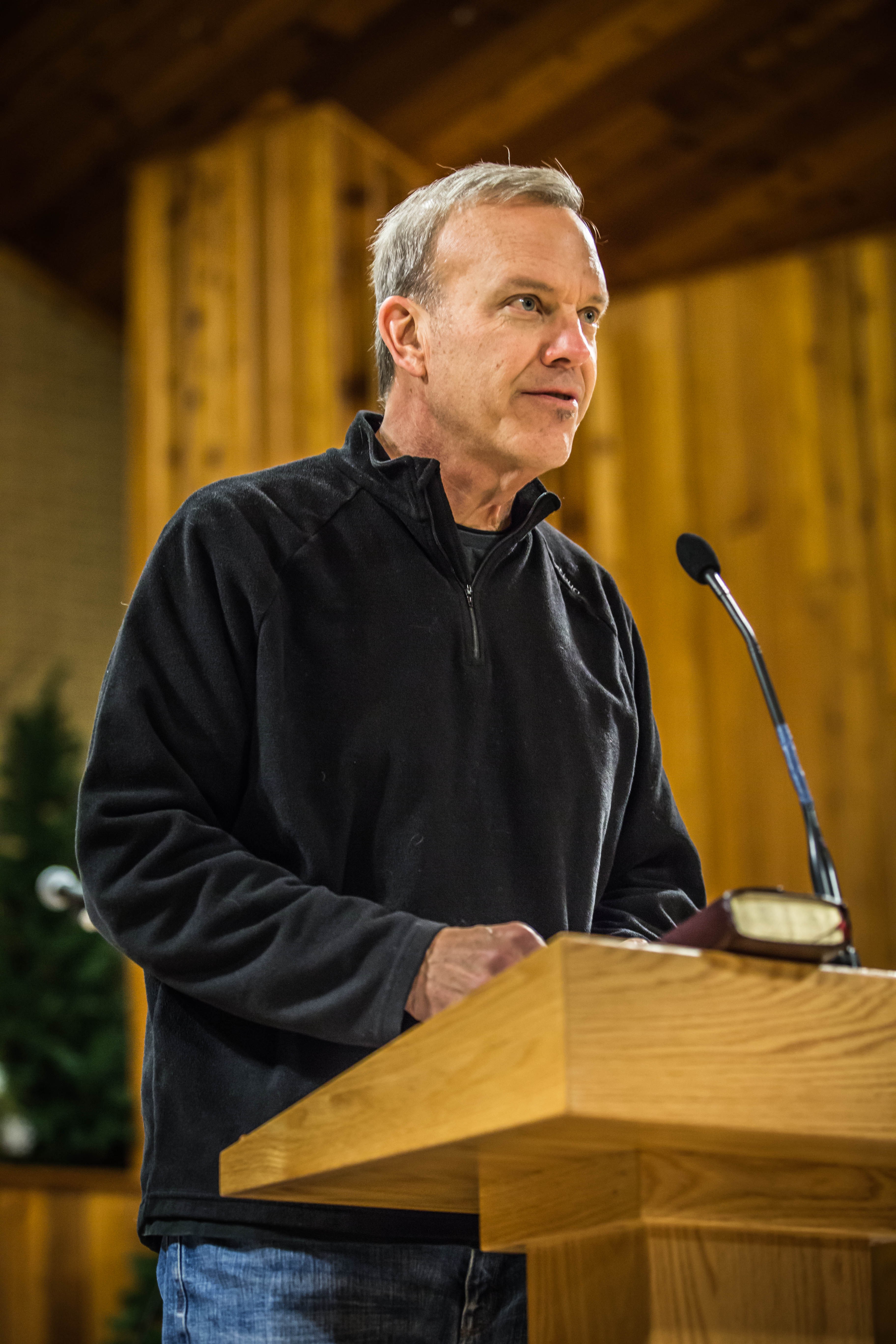David Fitch at Bethany College
This article was originally posted at The Mennonite Brethren Herald by Gil Dueck. Photos by Ellaina Brown.
Bethany community discovers missional practices at discipleship conference
HEPBURN, Sask.
What does it mean for the church to be missional within a post-Christian context? How can the church become a concrete and visible manifestation of the kingdom of God in the world? And what kinds of practices can empower us to do this?
These, and other questions, formed the basis for two days of invigorating conversation as Bethany College hosted its second annual Discipleship & Context conference, “Practicing the Kingdom Together,” Nov. 21–22 in Hepburn, Sask. This event also offered an opportunity for encouragement and collaboration between Bethany College students and some 50 faculty/staff and local church leaders who attended.
This year’s keynote speaker was theologian, church planter and (of particular note during Grey Cup week) Hamilton Tiger-Cats fan David Fitch. Author of several books, the most recent of which is Prodigal Christianity, he teaches at Northern Seminary, Chicago. Fitch has spent much of his career forging connections between his theological work and his on-the-ground experience as a church planter and pastor.
Reacting to cultural shifts
Fitch’s four plenary sessions expanded on two central points. First, we are living in the midst of significant cultural shifts that are forcing the church to re-examine its practices from a position of shrinking influence and power. Second, the church’s reaction to these shifts tends to be eitherdefensive or accommodative. We’re tempted to either re-establish ourselves or concede to cultural pressures and forfeit the uniqueness and power of the gospel.
Fitch argued that neither of these options will do. Instead, he says, we need to think of the church as the visible community that seeks to join with God who is already at work. We are not the exclusive owners of the mission of God, but neither do we serve merely to bless and affirm all the good things that are already happening within a culture.
These observations took on added meaning as participants discussed how to engage missionally with issues such as social injustice, alternative sexualities and religious pluralism.
In his final session, Fitch unpacked seven “missional practices” that can help congregations to discern the presence of Jesus in the world and proclaim his lordship with boldness and clarity.
Using personal stories and other examples, he painted a compelling picture of how practices like the Lord’s Supper, a presence among the “least of these,” and interpersonal reconciliation can enable the church to make the kingdom of God visible and tangible. This is accomplished as Christians act with the awareness that the Spirit is among us, and is actively engaged in leading us into the mission of God.
Second-year student Joshua Kehler said, “It’s about showing the world the transformative power of Christ while still being real. It’s about walking through some of the toughest times with people while holding on to the truth that Jesus is risen.”
Pointing people to Jesus – in context
Through-out the conference, Fitch suggested that evangelical and Anabaptist traditions have much to offer churches seeking to point people to Jesus in a context where they are not offered a place on the podium. “Evangelical Anabaptism,” he boldly argued, “holds the key to solving the theological problems that the church is facing in post-Christendom North America.”
Workshops – including “The Lord’s Supper: An Inside-out Practice of Symbol and Substance” by Bethany College internship director Darlene Klassen, “The practice of testimony” by Hepburn MB pastor Rod Schellenberg and “Worship as a way of life” by Saskatoon Emmanuel Baptist pastor Rob Priestley – fleshed out some of Fitch’s broader observations.
“The Discipleship & Context conference provided a great opportunity to hear one of the leading thinkers on the future of the church,” said Christopher Lortie, associate pastor at The Connection, Saskatoon. “Fitch invited us into conversation with him as we considered where God is leading us in our ministry contexts.”
Bethany’s vision for this event is rooted in its commitment to being a theological and missional leadership resource for the wider church. Visit www.bethany.sk.ca (under “Discipleship & Context”) for video and audio recordings of the plenary and workshop sessions.


